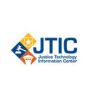The man sits at his computer, answering his e-mail, checking the new music downloads available at his favorite sites. In the back of his mind, the temptation is todo a bit of browsing on forbidden topics. But he also remembers the program his community supervision officer ran on the computer during the last visit. The program that quickly delivered information on all his Internet use. The program called Field Search.
The National Institute of Justice’s (NIJ) Office of Science and Technology funded the development of Field Search through the National Law Enforcement and Corrections Technology Center (NLECTC)-Rocky Mountain in 2005. Field Search helps community corrections officers deal with the ready access to the Internet available to sex offenders.
Since development of the Field Search tool in 2005, NLECTC-Rocky Mountain has updated it and continues to provide services to the corrections community as a partner with NIJ’s Weapons and Protective Systems Technologies Center of Excellence.
Field Search, currently in its third iteration, is designed specifically to help nontechnical probation and parole officers quickly and efficiently search an offender’s computer and create a detailed report of their findings. Not a forensic software application, Field Search is instead designed as a fast and user-friendly investigation and management tool for field agents not trained in computer forensics. The software is provided free of charge to community corrections agencies, and NLECTC-Rocky Mountain offers training opportunities (via CD-ROM) to go along with it. This update was funded by NIJ through the Rocky Mountain Center and the Weapons and Protective Systems Technologies Center of Excellence.
“The management and monitoring of sex offenders’ computer use is important for many reasons,” says Joe Russo, assistant director for corrections at the Rocky Mountain Center. “First, it can alert authorities to a new crime such as possession of child pornography. Second, it can help provide proper supervision by reinforcing treatment prohibitions against access to sexual material. Lastly, monitoring computer use is essential in helping treatment agencies better understand offenders.”
NLECTC-Rocky Mountain released version 3.0 for Windows (FS-Windows) in May 2008, which works with the latest versions of Windows and adds the ability to view the most recently used files. This capability allows officers to quickly see what a subject has been looking at recently, perhaps since the last visit, Russo explains, and is quicker than doing a full scan. The new version also can scan specific folders as opposed to scanning the entire hard drive, again delivering quicker, targeted results. Also, the first version of Field Search for MacIntosh (FS-Mac) became available in September 2008, eliminating the potential for subjects’ “dodging” searches by purchasing Mac computers.
“If officers can use Field Search for Windows, they’ll be able to use Field Search for Mac very easily,” Russo says. “It uses the same buttons and the same processes and will be a lot faster as well. It takes 25 to 30 minutes for a full Windows search, and Mac starts to return keyword search hits within 20 seconds and will complete a full search in just over one minute. With Mac, there is no comparable tool anywhere, and corrections and law enforcement have been eagerly waiting for this.”
Ideally, he says, officers will be able to carry both versions on the same portable drive so they can deal with whatever computers they encounter in the field. Both versions work in essentially the same way and include the following features:
Browser history and cookies search, which works with Internet Explorer®, Netscape®, Firefox and Opera. Results are displayed in an easy-to-read format that includes the date and time the subject visited each Web site, and can be sorted in a number of ways to help the officer understand an offender’s surfing patterns.
Image search, finding all logical .jpg, .bmp, .png and .gif files, even if zipped, in a gallery view.
Media search, which will locate and play video files.
Built-in report function of all items selected for inclusion. Each item’s associated path and date/time stamps are included.
Text search, allowing officers to search for specific words and phrases in any logical file, including zipped files (if they are not password protected).
Export function, using data to populate standard Microsoft® Excel® spreadsheets for further analysis. All records are exported, regardless of whether records were selected for inclusion in a report. All date/time stamps associated with history records and text search hits are exported along with the data.
Although Field Search and its functions were designed with the corrections community in mind, Russo says that law enforcement officers have also found value in the tool, using it in basic criminal investigations and to scan law enforcement agency computers for evidence of abuse. Correctional facilities often use it to monitor computers that inmates can access.
“It’s really nice to see that crossover,” Russo adds. “The best thing is it’s a nice free tool that the nontechnical officer can use. The payoff for us is it is being used in the field, and used successfully, and bad guys are being caught and being held accountable.”
To learn more about the program and/or download a copy of Field Search, visit www.justnet.org/Pages/fieldsearch.aspx.
This article was reprinted from the Winter 2009 edition of TechBeat, the award-winning quarterly newsmagazine of the National Law Enforcement and Corrections Technology Center System, a program of the National Institute of Justice under Cooperative Agreement #2005–MU–CX–K077, awarded by the U.S. Department of Justice.


